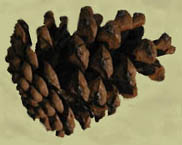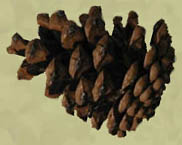



 Special thanks to D.
James Tindell,
Special thanks to D.
James Tindell,
and the
Trailblazer Magazine,
for making the story available to us.
|
LAWMAN
by
D. James Tindell
(originally published in the Sawyer
County Record, 2003)
"Officer down!"
The call every man and woman in law enforcement dreads hearing
came in at the Sawyer County Sheriff's Office on September 10th,
1996. The words aren't welcome on any day, but were particularly
unwelcome on this day. It was Primary Election Day, and Sheriff
Don Sheehan was up for re-election. He'd won six previous general
elections, and was now seeking another two-year term. A lot was
at stake, but not nearly as much as in Cable, in neighboring
Bayfield County, and so Sheriff Sheehan didn't hesitate. He answered
the call.
Life-threatening situations were not new for Don Sheehan, but
on his way to Cable that day he didn't have time to think about
the past. He was busy thinking about the situation he was about
to confront, issuing orders and gathering information, so that
he would be ready to act when he arrived at the scene. Bayfield
County wasn't in his jurisdiction, but the bonds between law
enforcement officers respect no county lines, and they needed
his help. Sheriff Sheehan and his Sawyer County deputies were
on the way.
Don Sheehan was only 18 years old when he enlisted in the U.S.
Army, fresh out of Hayward High School, class of 1966. A year
later, he was off to Vietnam, leaving his high school sweetheart,
Sandy Laska, behind to wait and worry. Young Americans, and young
Vietnamese, were dying over there, but the youthful soldier didn't
brood about the hazards he was about to face. "When you're
young, you don't think as much about that," he says today,
"about dying or getting killed, you just do what you have
to do. As you get older, you think more about that." Looking
back on the years from his comfortable Hayward home, with reports
of a new war in another foreign land on his television, Sheehan
has time to reflect.
In a thick scrapbook, a visitor sees pictures of a strapping
young man and his buddies, riding aboard a fearsome armored vehicle.
"That was the 'Duster'," he says, "the tracked
vehicle I was on for a year." The vehicles were the precursors
of today's Bradley Fighting Vehicles, lightly armored tracks
that were designed to carry a squad of troops into the field
and sting the enemy with its own weapons, a trio of 40mm guns.
"We had a lot of firepower," Sheehan recalls from his
days as a sergeant who commanded a Duster and its squad, part
of the 1st Battalion of the 44th Artillery. "Those 40-millimeters,
on a new set of guns, would fire 240 rounds a minute." Sgt.
Sheehan and his crew saw plenty of combat during his yearlong
tour, escorting supply convoys but also going on many search-and-destroy
missions. The young soldier from Hayward came home unscathed.
He married Sandy and a year later was discharged. The young couple
came home.
Sheehan never considered a career in law enforcement. "It
just happened," he says, "and when it happened, I liked
it and decided to stay in it." A year after returning to
town, Sheehan accepted a part-time position with the Hayward
Police Department. "I started out as a patrolman, then I
was a sergeant for the city, and before I left the city I was
Chief of Police." Like many military veterans, Sheehan found
his Army experience to be helpful in the transition to civilian
law enforcement. "You're proud to serve," he says.
Resigning from the police department in 1977, Sheehan went back
to the private sector, working as an electrician. A short time
later, an opening came up for a deputy's position in the Sawyer
County Sheriff's Office. Duty called Don Sheehan back into uniform.
By 1980 he had been promoted to Chief Deputy for the county,
and two years later he decided to throw his hat into the ring
and run for the top job. He won, the first triumph in an 11-election
winning streak.
Today's county sheriffs serve four-year terms, but Sheehan had
to deal with politics every other year. That was the worst part
of the job. "It's very hard, because anybody can make mistakes,
and sometimes things happen, and you don't have time to correct
them before it's election time again." But the voters of
Sawyer County quickly grew to like Don Sheehan and kept him wearing
the badge.
Robert Ornberg moved north from northeast Illinois around the
same time Don Sheehan won his first election. Ornberg had just
wrapped up a 22-year career as a police officer in the Chicago
suburb of Des Plaines, but in early 1982 he got back into law
enforcement as a Sawyer County deputy. His second career would
last 15 years, and his experience as a suburban officer gave
him a unique perspective on his boss. "Not only was he a
good cop, but a good person," Ornberg says today. "A
cut above many. A natural leader, a good guy to work with."
After working for supervisors who often concerned themselves
more with politics and paperwork than with real police work,
Ornberg was pleased to see that Sheriff Sheehan operated differently.
"He was a common-sense, street-type person," Ornberg
recalls. Sheehan would not hesitate to go out into the field
with his deputies. "I was impressed by the way he handled
himself. Some well-educated officers in Illinois had trouble
tying their shoes. Not Don."
Ornberg also cited Sheehan's skill in managing the sheriff's
office. "He was open to a lot of changes," he says,
"and he wasn't afraid to do things that needed doing. He
put a lot of effort into all phases of the department."
As a result, in Ornberg's view, the department became far more
efficient.
Like all county sheriffs in largely rural counties, one of Sheehan's
main concerns was providing adequate coverage of the county's
1400-plus square miles. "Sometimes we were down to one person
on duty for a county this large," he said. Sheehan constantly
had to juggle his resources. "When we had one on, early
in the morning, I'd tell him to stay central, so if we get a
call, we'd call another man out to back him up but we could get
him on his way." Still, some communities in the outlying
sections of the county would complain that they weren't getting
adequate coverage. "I made sure their needs were cared for,"
Sheehan says, "but sometimes I had to agree with them. I
just didn't have the staff to do it."
And like most of his brother sheriffs, Sheehan didn't absent
himself from the front lines of duty. "I pretty much stayed
on the lines," he says. "If there was a call, no matter
what time of day or night, a stabbing, something serious, I went,
no matter what. And I didn't always have to do that. I had good
men underneath me, but I went, because if something doesn't go
right, I would blame myself, I couldn't blame them. I wanted
to be there, make sure it was done right, because that's what
the people elected me to do."
Sheehan made steady improvements in the department over the years,
instituting special tactical, SWAT and dive teams. Yet he never
let his job take control of his family life. Don and Sandy had
three children: Julie, Jenny and Jon. "He was a great father,"
Jon says. "Still is. Couldn't ask for a better one."
Becoming sheriff didn't change Don, says his son. "His job
didn't change him one bit. He was always thinking about other
people, no matter what. He's what every person would want to
be." The children have given their parents five grandchildren,
with one on the way.
Sandy had an adult's perspective on the danger her husband faced.
Unlike many police officers' wives, she didn't sit in front of
a scanner while he was out on a call. "Most of the time
it would be at night," she says. "You'd get up for
awhile and watch some TV and wait for the phone call." At
the urging of his officers' wives, Don instituted a policy that
required wives to be called by the central office, keeping them
updated on situations their husbands were involved in. "You
do lay awake a lot," she recalls. She spent many hours on
the telephone, talking to younger officers' wives. "We stuck
together."
"We didn't know what was going on,"
Don Sheehan says of that September day in 1996. "All we
knew was that there was trouble." The trouble started when
Cpl. Richard Parquette of Bayfield County responded to a call
that said someone had painted a swastika on the outside of an
apartment door. As Parquette opened the lower door of the enclosed
outside staircase, a man came out of the apartment door at the
top of the stairs and opened fire with an assault rifle. The
deputy went down, and his backup officer radioed for help.
Working with his own officers and fast-arriving Bayfield deputies,
Sheehan ordered the neighborhood cleared. The tactical situation
was not good. The suspect had a wide field of fire from his doorway
and a window. Still, a man was down. "A decision was made
to go in," Sheehan recalls, "and that's exactly what
we did." Sheehan's first priority was to get to Parquette.
Two men led the way with bulletproof shields, accompanied by
four men with raised weapons. Don Sheehan was one of them. The
team made its way safely to the staircase, but Parquette, 57,
was already dead. The officers removed the body, and Sheehan
sent his tactical team up to the apartment. They found the suspect,
dead of a self-inflicted gunshot. His motives are still unknown.
In 2002, Don Sheehan decided that it was time to retire. Many
in the community urged him to run again, but the term of office
had just been expanded to four years. "It was a hard decision
to make," he says. A serious traffic accident helped convince
him it was time to go. He was 54 years old, and the calls were
getting a little harder. Sheehan could've stayed on and stayed
behind his desk, but that wasn't his style. He was a hands-on
sheriff. "I took care of business," he says. "I
treated people like I would want to be treated. I was available
when they needed me. I cared."
|



